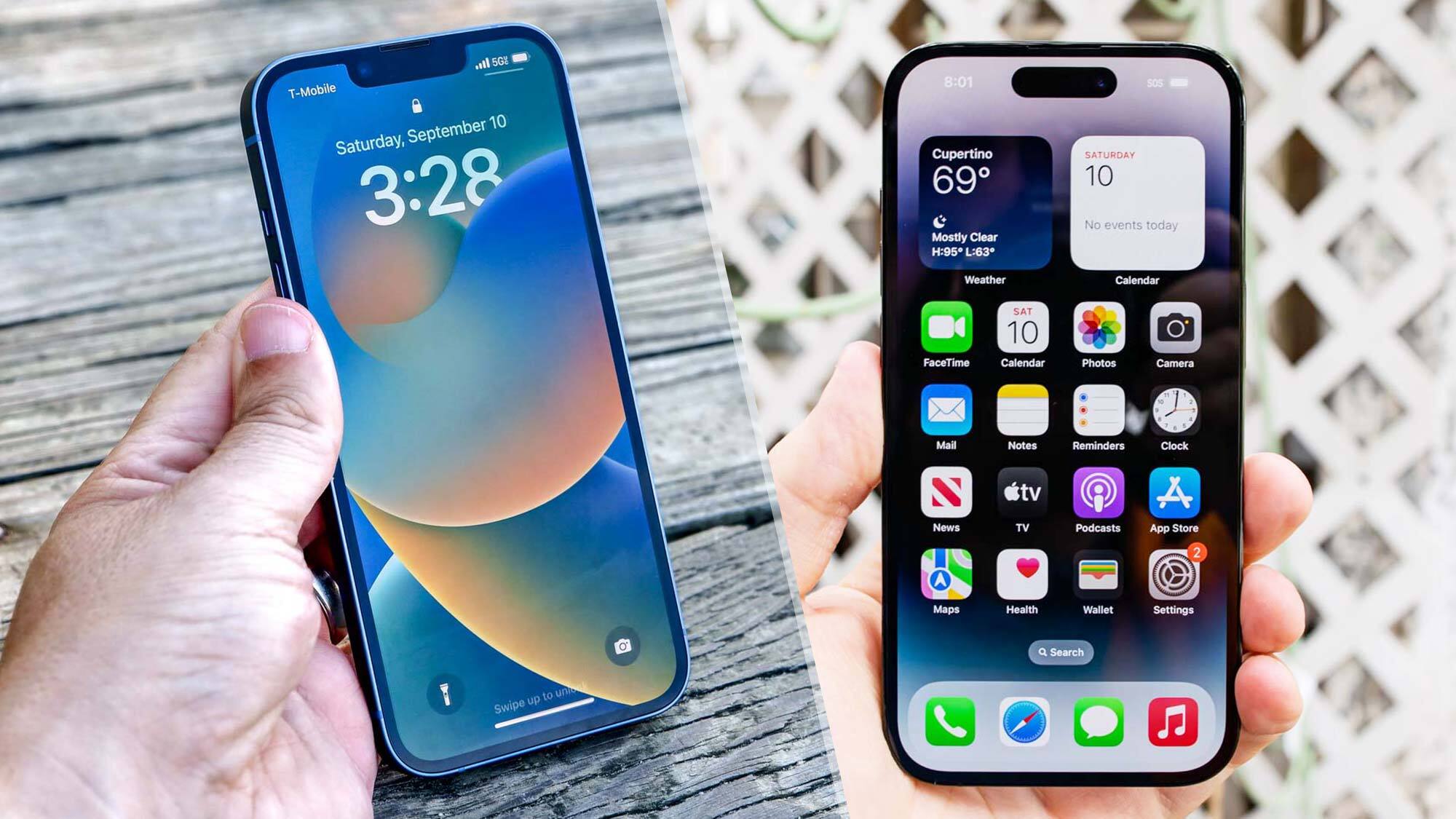
Apple's basic 2022 iPhone is still on sale at Apple for a reduced price. Anyone who buys it will find a surprisingly fully-featured phone with still-great cameras, high display quality and a potent if aging chipset. But the lack of Pro features may leave you wanting more.
For
- Strong photography
- Bright and colorful screen
- Lowest price ever
Against
- 60Hz refresh rate
- No telephoto camera
The iPhone 14 Pro is long gone from Apple's lineup after introducing us to the Dynamic Island notch replacement and Apple's first 48MP camera. This phone was a big step forward when it launched, especially given the gap between its premium features and what Apple included with the iPhone 14. Subsequent iPhone models have picked up many of those features, though.
For
- Dynamic Island instead of notch
- More advanced chip
- Gorgeous ProMotion display
- Top quality cameras including 48MP sensor
Against
- Weak battery life
- More expensive than iPhone 14
When trying to save money on a new iPhone, you may well have found yourself considering 2023's iPhone 14 as a high-quality but more affordable model than the current iPhone 16 models that make up the best iPhones. Even at this late date, you'll still get a lot of value with the iPhone 14 — especially after another price cut by Apple — but it's important to remember what this phone lacks with an iPhone 14 vs. iPhone 14 Pro comparison.
In its day, the iPhone 14 Pro felt like a completely different handset instead of simply an enhanced version of the iPhone 14, as previous iPhone Pro models have been. But basically everything turned out different with these 2022 models, including the design, chipset and more.
They may share the same screen size, but the iPhone 14 feels like a very modest upgrade compared to the iPhone 13, while the iPhone 14 Pro features much more dramatic improvements over its predecessor, the iPhone 13 Pro.
In this iPhone 14 vs. iPhone 14 Pro face-off, we’ll break down the key differences between the two models so that you can make the best purchasing decision for you. There’s a $200 difference between them, so it’s important to consider what separates these phones that share a number, but little else.
This comparison also applies in a way to the iPhone 14 Plus and iPhone 14 Pro Max, which face the same differences as the iPhone 14 and iPhone 14 Pro, but with larger screens. Alternatively, if you want a more up-to-date comparison, take a look at the iPhone 16 vs. iPhone 16 face-off to see how the latest models stack up.
iPhone 14 vs. iPhone 14 Pro: Specs
iPhone 14 vs. iPhone 14 Pro: Price and availability
Apple released the iPhone 14, iPhone 14 Pro and iPhone 14 Pro Max in September 2022, with the iPhone 14 Plus arriving later in October. At the time, the lineup started at $799 for the regular iPhone 14, $899 for the Plus, $999 for the Pro, and $1,099 for the Pro Max.
These days, only the iPhone 14 and iPhone 14 Plus remain available from Apple, with the base model starting at $599. The iPhone 14 Pro is no longer part of Apple's lineup, though you still may be able to find it at some retailers. Be sure that the price is marked down well below the original $999 cost, as you could get a newer iPhone 16 Pro for that much.
iPhone 14 deals aren't always easy to come by in this day and age, but check for deals anyhow, as you may find that you can get either phone at a significant discount — or for free! — if you're willing to commit to specific wireless carriers for the next few years.
iPhone 14 vs. iPhone 14 Pro: Design
This is the first area where things diverged between the iPhone 14 versus iPhone 14 Pro. The standard iPhone 14 looks basically the same as the iPhone 13, including the diagonal camera lens layout and slimmer notch. The iPhone 14 Plus looks like a blown up version of that. If you liked the iPhone 13’s design, you’ll be just fine with the iPhone 14’s.
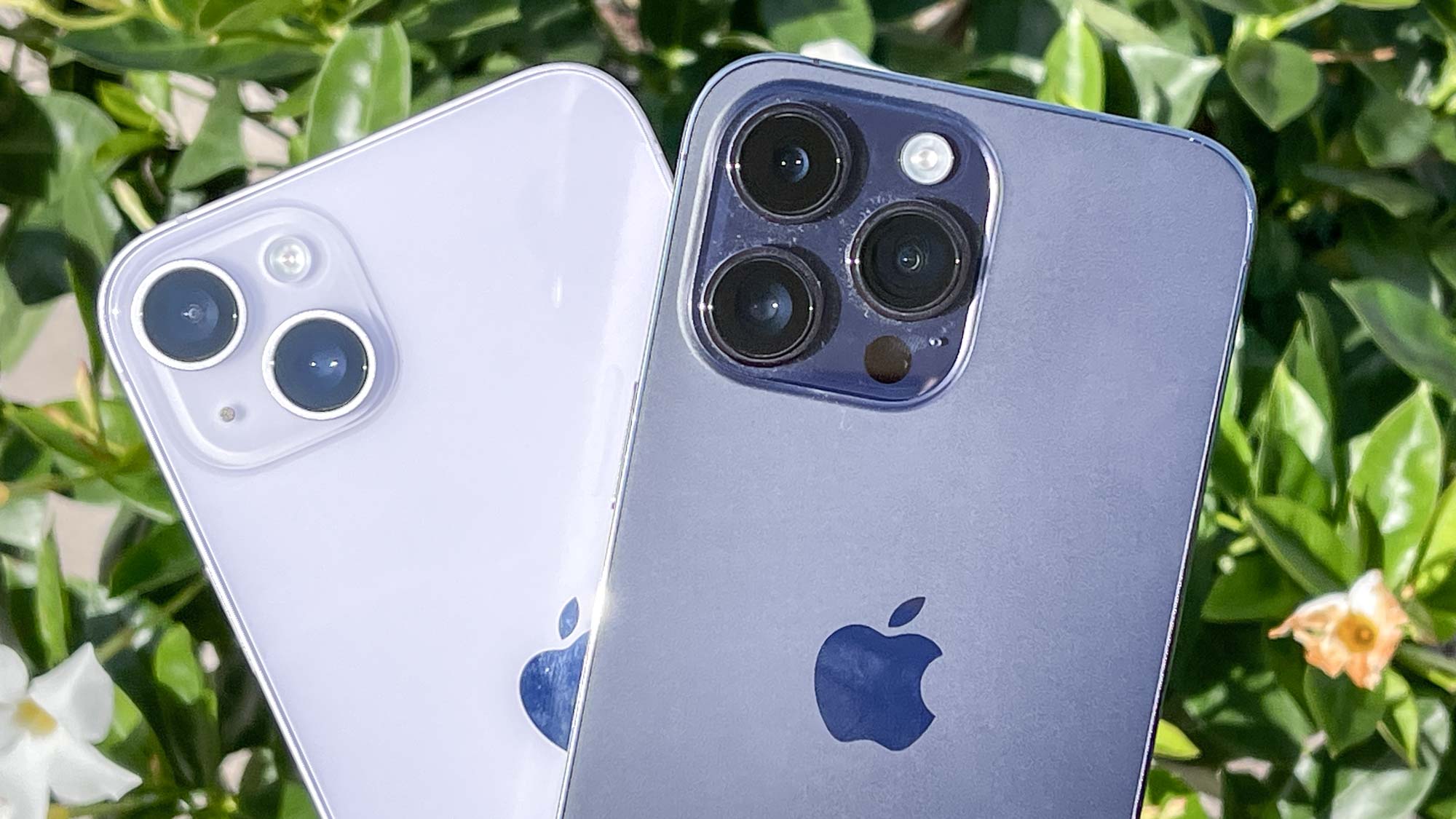
But the iPhone 14 Pro turns out to be where Apple spent its time. The design from the back looks similar to the iPhone 13 Pro, though the camera module is larger thanks to the new 48MP main sensor. (More on that below.) The fun Pro color in this model is a beautiful deep purple, a rich violet fit for royalty. Meanwhile the iPhone 14 and 14 Plus get exclusive access to a canary yellow hue.
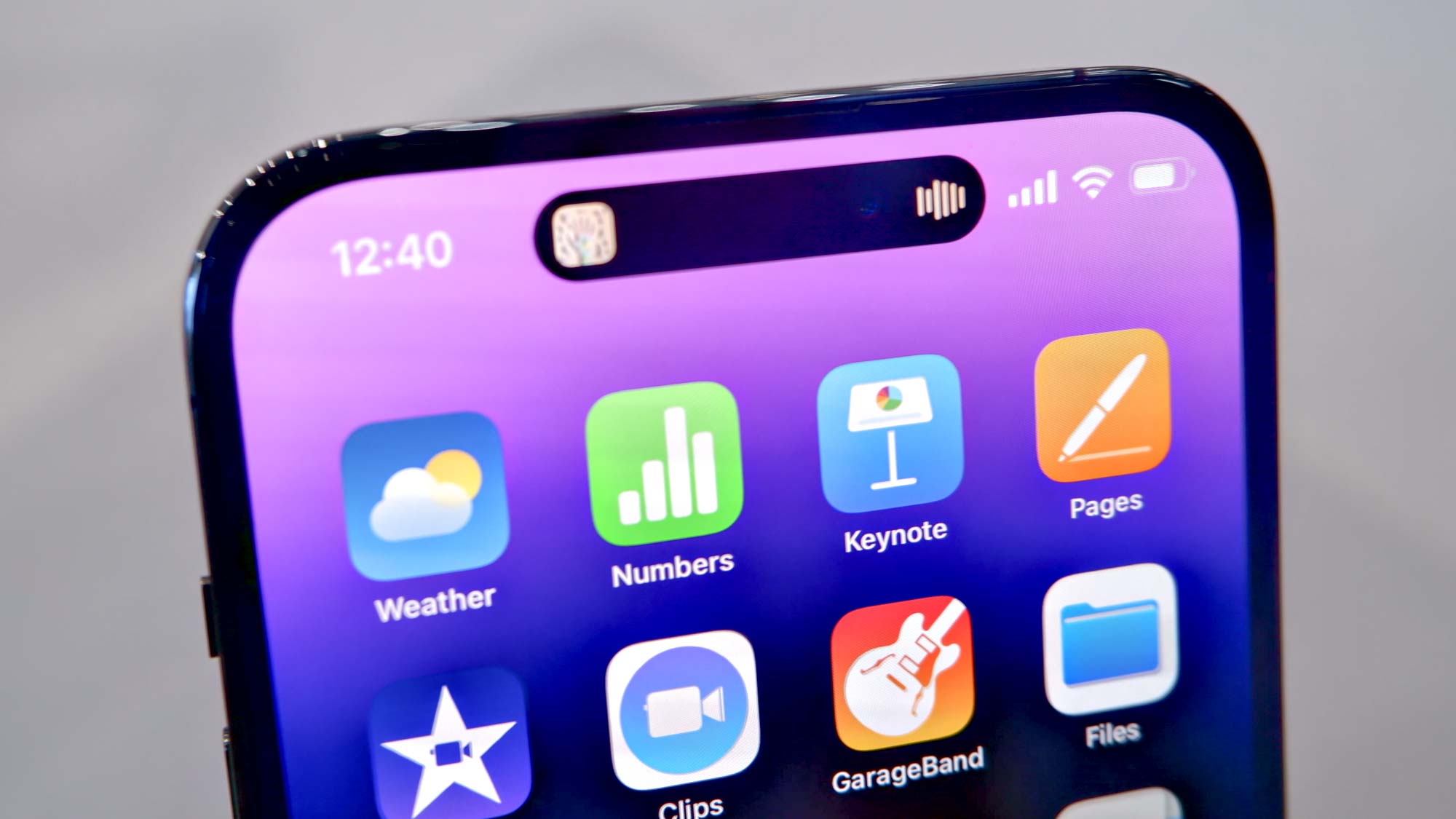
Around front, the notch disappeared from the iPhone 14 Pro, replaced with a wide pill-shaped cutout that is the main focus of what Apple calls the Dynamic Island. This feature expands the cutout, taking advantage of the new screen real estate, for alerts and similar notifications. Since the iPhone 15's release, the Dynamic Island is now available on all of Apple's latest phones.
iPhone 14 vs. iPhone 14 Pro: Display
Unlike the iPhone 16 lineup, where every model is a different size, you get just two phone size across the entire iPhone 14 lineup — 6.1 inches and 6.7 inches. The iPhone 14 and iPhone 14 Pro are the smallest models, while the iPhone 14 Plus and iPhone 14 Max pack in very large displays.
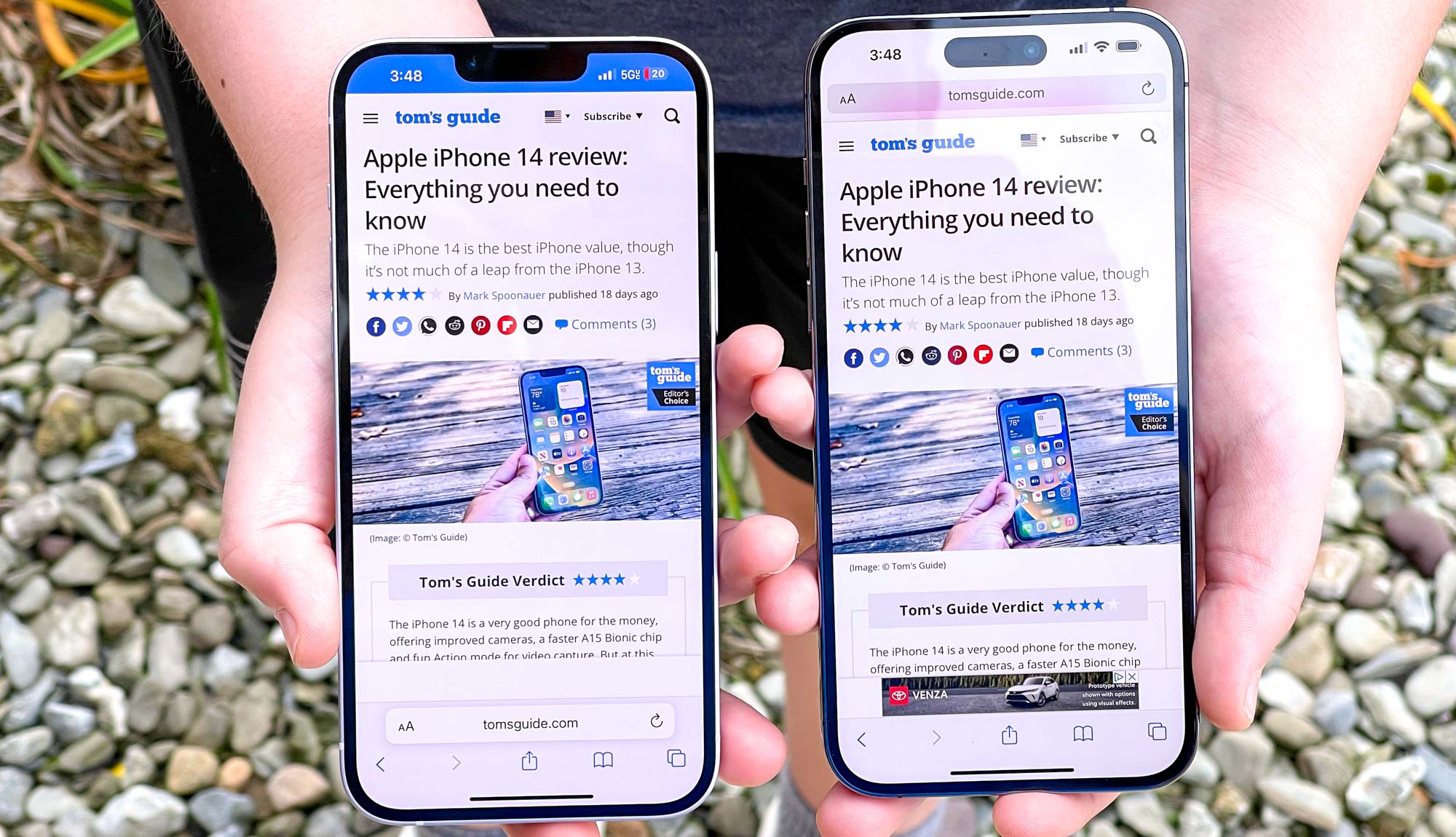
All four feature Apple’s Super Retina XDR and use OLEDs as the panel tech. The iPhone 14 has a resolution of 2532 x 1170 (460 ppi) while the iPhone 14 Pro is 2556 x 1179 (460 ppi), so the resolutions are functionally identical. For the larger handsets, the iPhone 14 Plus comes in at 2778 x 1284 (458 ppi) with the iPhone 14 Pro Max at 2796 x 1290 (460 ppi).
In our testing, the iPhone 14 Pro hit a max HDR brightness of 1,448 nits. The iPhone 14 came in much dimmer at 734 nits.
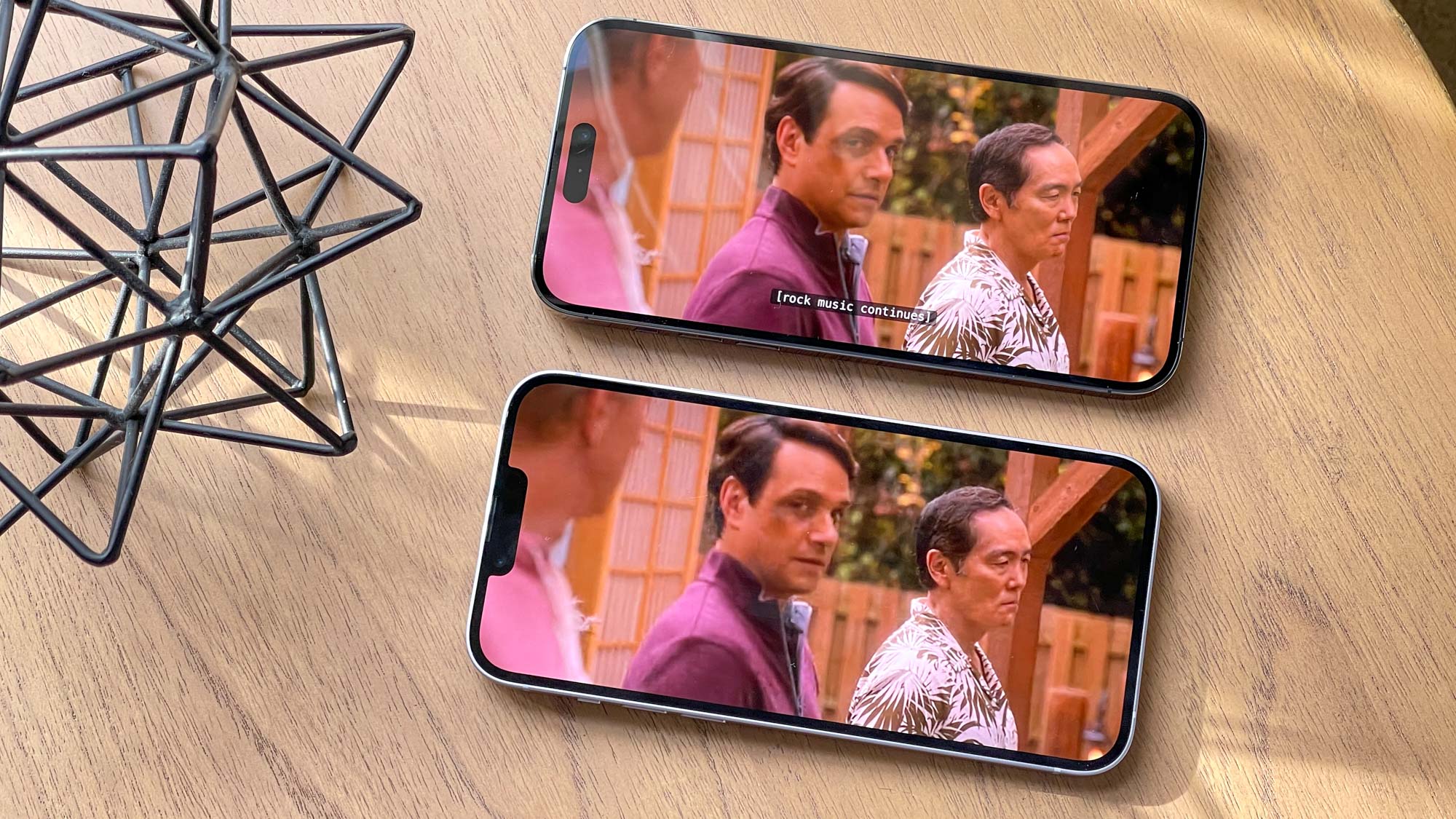
An always-on display feature finally arrived on the iPhone with the iPhone 14 Pro. This is a low-power mode that lets you see some basic information at glance while your phone screen is off. The iPhone 14 does not get to enjoy this feature which is basic on essentially every Android phone. And since the current iPhone 16 and iPhone 16 Plus lack always-on features, it's clear that Apple leans heavily on the adaptive refresh rate of its Pro phone displays to keep the feature from draining the phone’s battery.
As usual with iPhones, the displays are beautiful. With punchy colors and deep blacks, both the iPhone 14 and iPhone 14 Pro impress with any visual content. But the Pro holds a distinct advantage with brightness, which is ideal for outdoor use. It can also ramp up its refresh rate to 120Hz, something missing from the iPhone 14.
iPhone 14 vs. iPhone 14 Pro: Cameras
Like every year, Apple upgraded the cameras on both the iPhone 14 and iPhone 14 Pro. The iPhone 14 features a larger main 12MP sensor with larger pixels (1.9 microns), a faster f/1.5 aperture, and a touted 49% improvement in low-light performance. Sensor-shift image stabilization comes as standard. (These specs apply to the iPhone 14 Plus, which is also still on sale at Apple, for $699.)
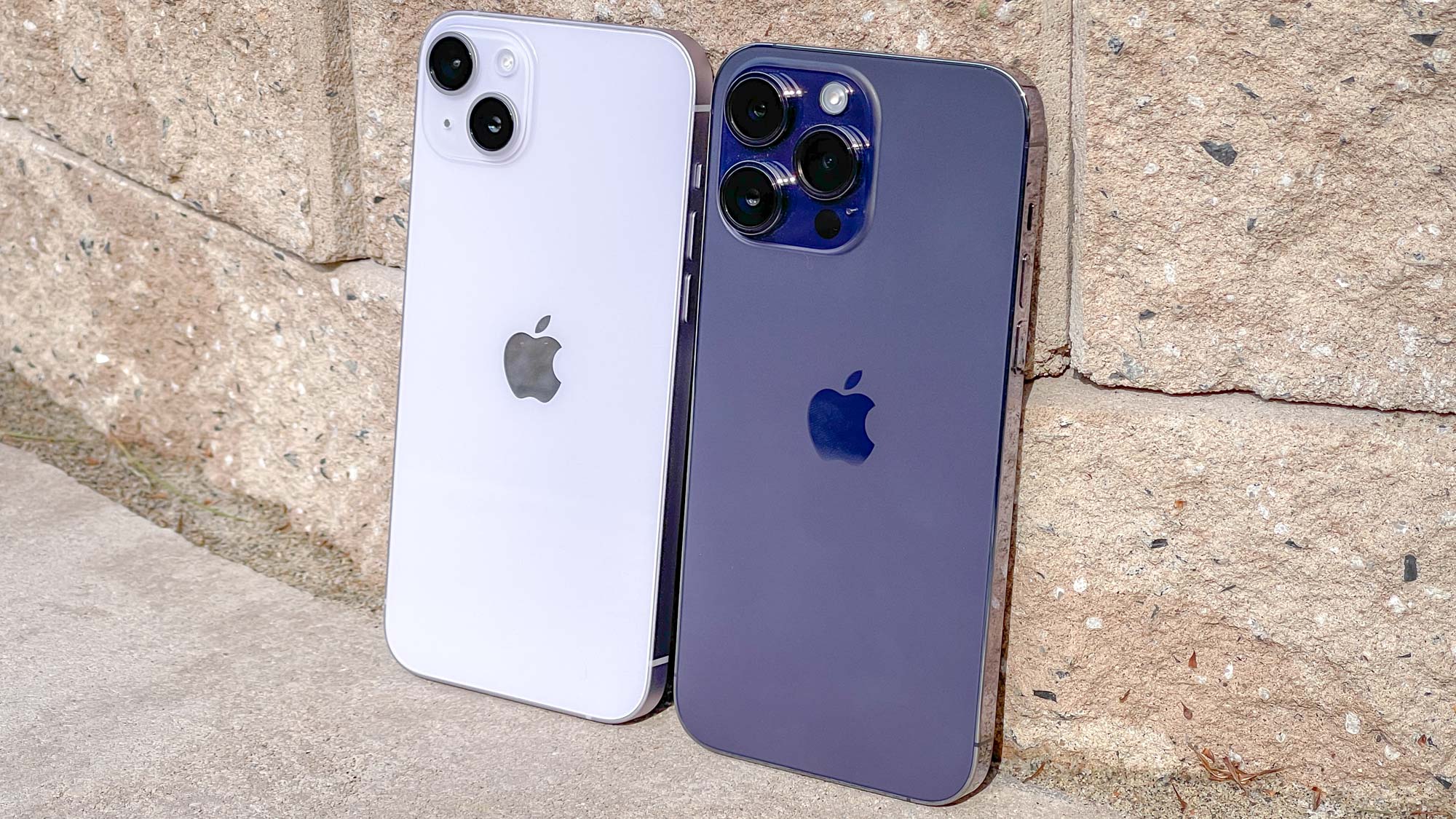
The 12MP front-facing camera on all four iPhone 14 models got a serious boost with an enhanced hybrid focus system, partially powered by the new autofocus capability. That ensures clearer selfies. Apple also introduced the Photonic Engine across the iPhone 14 lineup, which uses AI to improve low-light photography across all of the cameras.
Video also saw a bump thanks to Action mode. While perhaps not as impressive on the surface as the Cinematic mode addition from 2021, Action mode delivered a massively upgrade video stabilization.
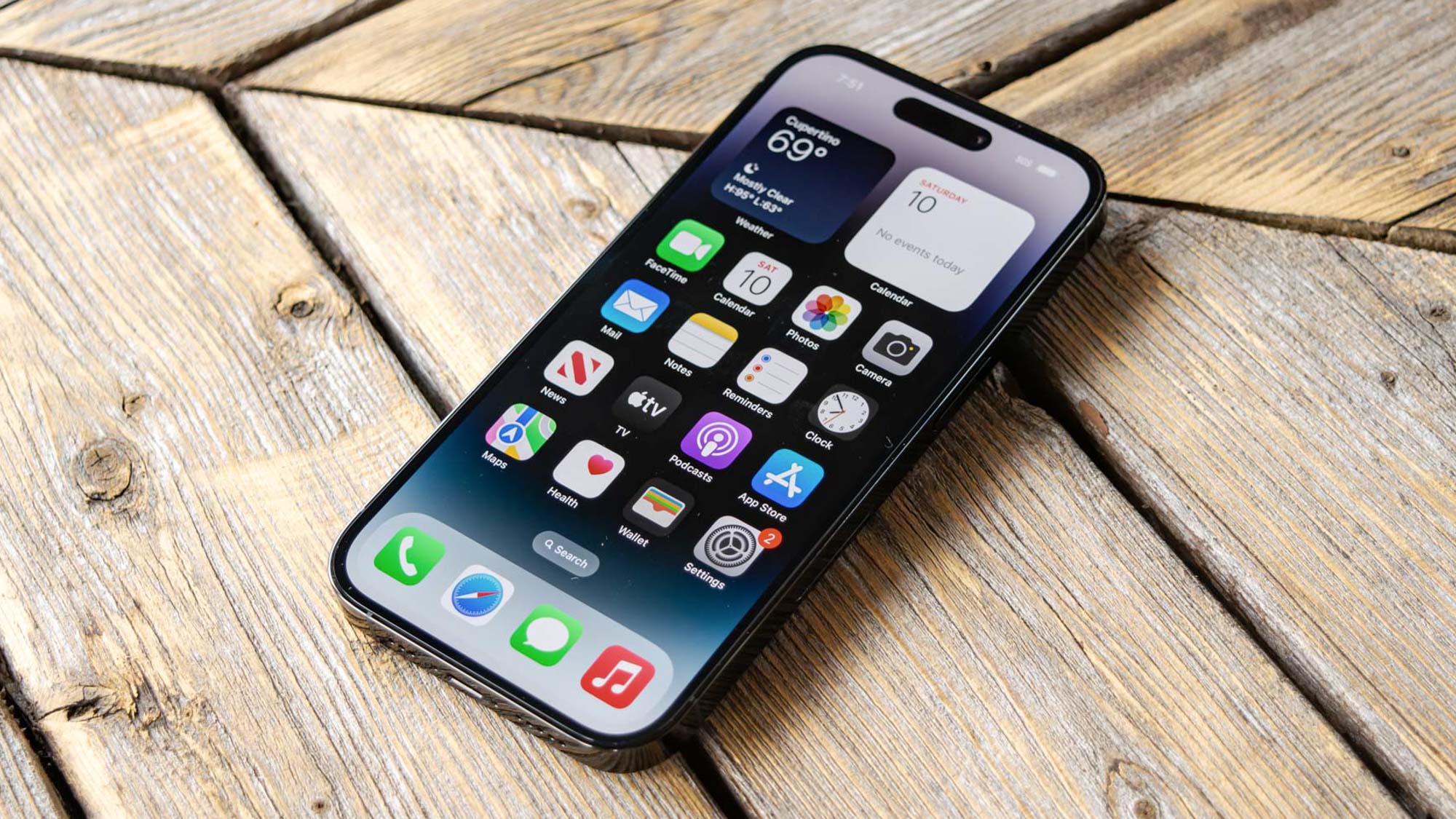
The iPhone 14 Pro received all of these software features, along with a new 48MP main sensor that’s also 65% larger than the iPhone 13 Pro’s sensor. It can do 2x optical zoom on its own, but in tandem with the 12MP 3x telephoto lens, you can get some nice zoomed photos. You can see how the iPhone 14 Pro's zoom compares to other flagships from the smartphone class of '22 in our Pixel 7 Pro vs. iPhone 14 Pro vs. Galaxy S22 Ultra zoom shootout.
The 12MP ultrawide camera on the iPhone 14 Pro is also better than the iPhone 13 Pro’s, letting in three times more light than before. Even the flash has seen an improvement. And for pro photographers, the iPhone 14 Pro can capture a huge 48MP RAW image, unlocking a ton of potential for later edits.
iPhone 14 vs. iPhone 14 Pro: Performance
Yet another area where the iPhone 14 and iPhone 14 Pro diverge comes down to the chipset. The iPhone 14 sticks with the A15 Bionic from 2021, though it uses the more advanced version found in the iPhone 13 Pro — the one with a 5-core GPU. It’s still a powerful chip though with two years of phone releases happening since the iPhone 14's debut, you are definitely not getting a state-of-the-art chipset anymore.
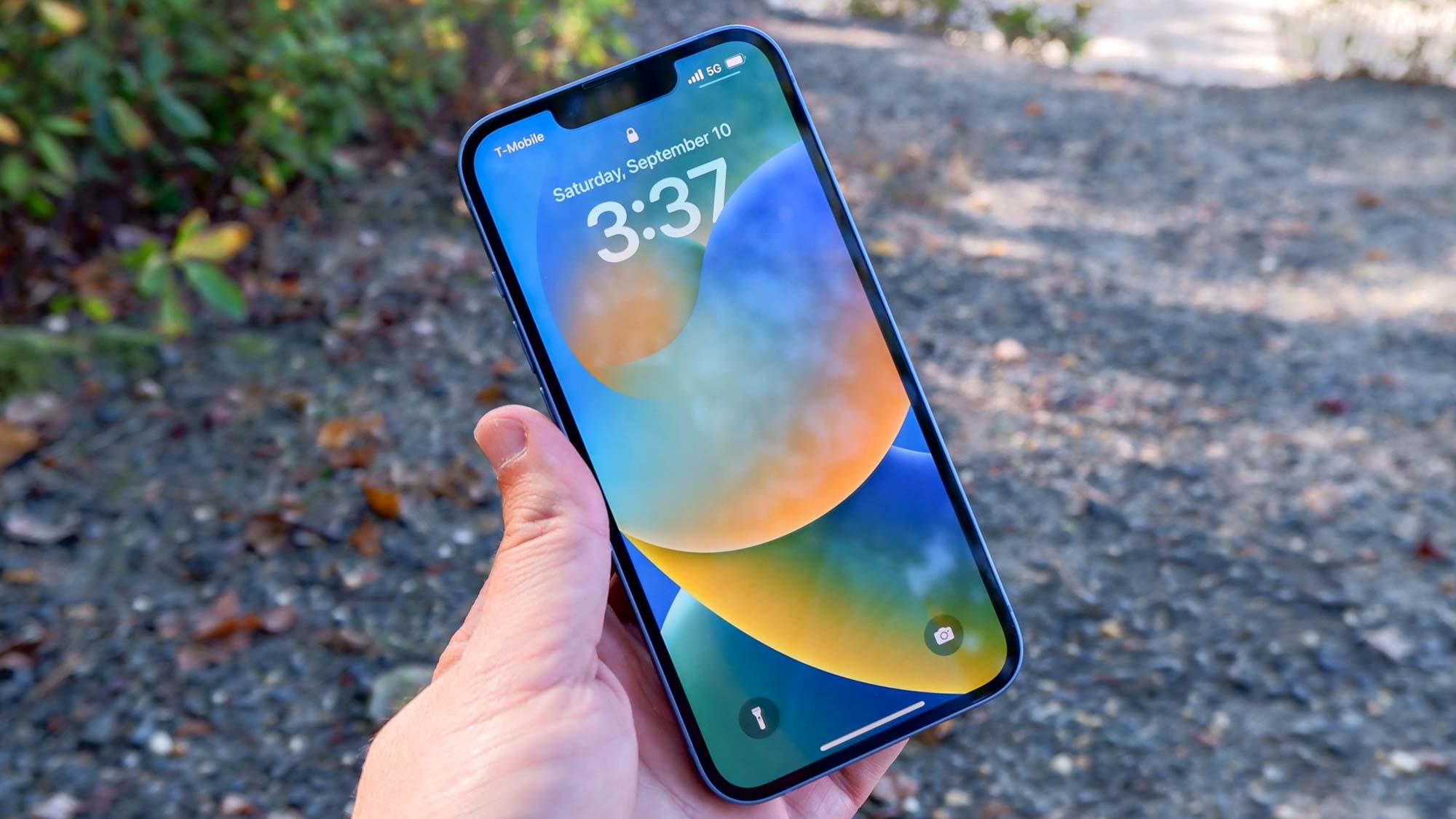
The iPhone 14 Pro, meanwhile, gets a newer A16 Bionic with a hexa-core CPU, penta-core GPU, and 16-core Neural Engine, all built on a 4nm process. This is one powerful chip, and Apple's still using it in the iPhone 15 models included in its current lineup.
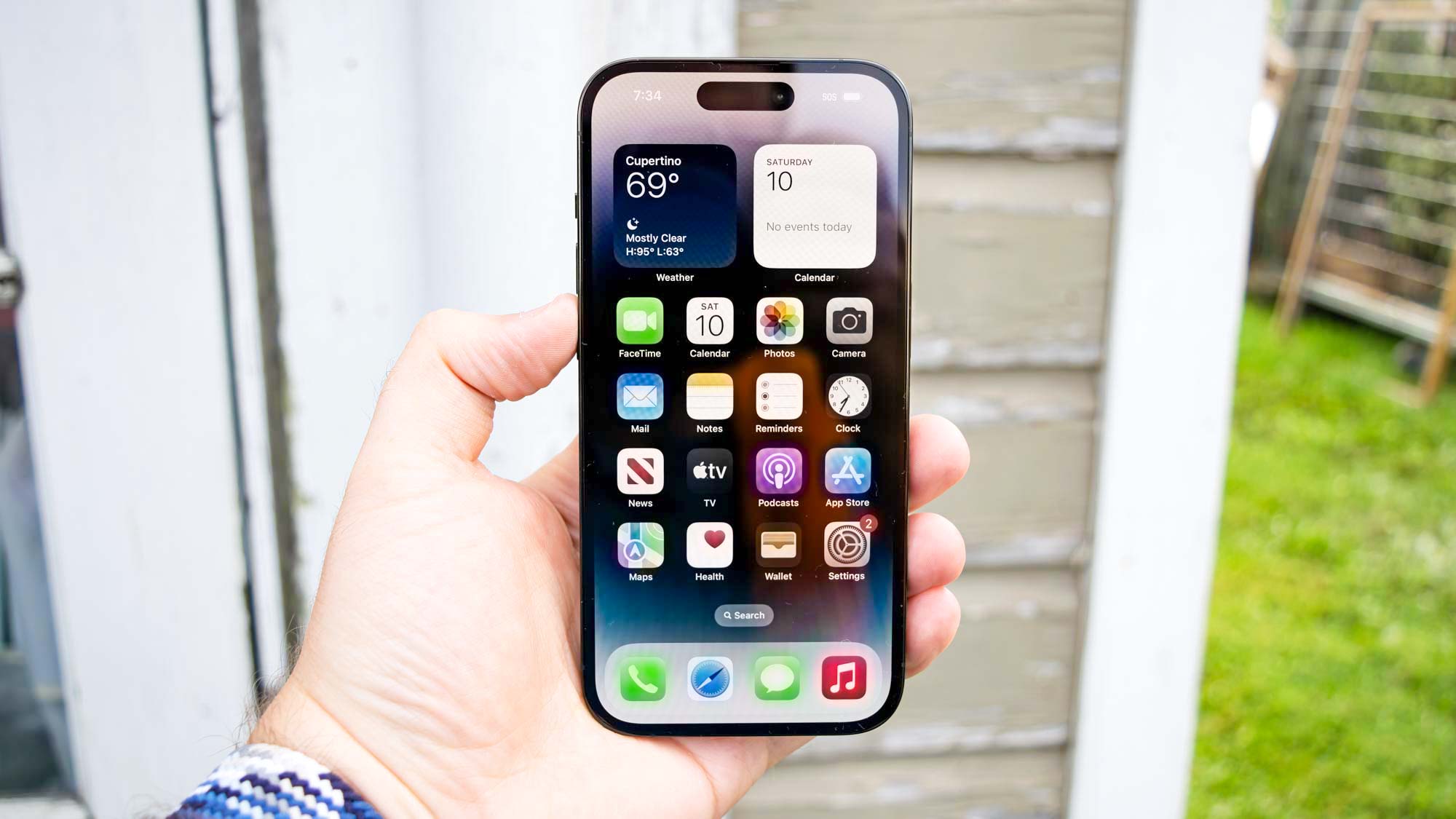
In our Geekbench 5 testing, the iPhone 14 Pro scored 1,891 in single-core and 5,469 in multicore. Compare that to the iPhone 14's 1,727 / 4,553 output. That's quite a difference in the multicore performance.
The GPU also shows another divide, with the iPhone 14 Pro managing an average of 74 frames per second (fps) in 3DMark Wild Life Unlimited. In the same benchmark, the iPhone 14 got 69 fps. Not a huge difference, but still worth noting.
Finally, the phones are pretty much equal in the Adobe Premiere Rush 4K-1080p transcode test, with the iPhone 14 Pro completing the benchmark in 26 seconds while the iPhone 14 was right behind it at 28 seconds.
Performance junkies might notice the disparity between the iPhone 14 Pro and iPhone 14, but most people will not. That said, even with the gap in silicon, neither phone has the horsepower to support Apple Intelligence features being rolled out to select iPhones this year — you need at least an A17 Pro chip for that suite of AI-powered tools.
iPhone 14 vs. iPhone 14 Pro: Battery life and charging
Both the iPhone 14 Pro and iPhone 14 disappointed when it came to battery life, something we can't say about the long-lasting iPhone 16 series. In our battery life test, where we task a phone to endlessly reload web pages over a cellular connection, the iPhone 14 Pro barely exceeded the average we see at 10 hours, 13 minutes. The iPhone 14 clocked in a worse 9 hours, 28 minutes.
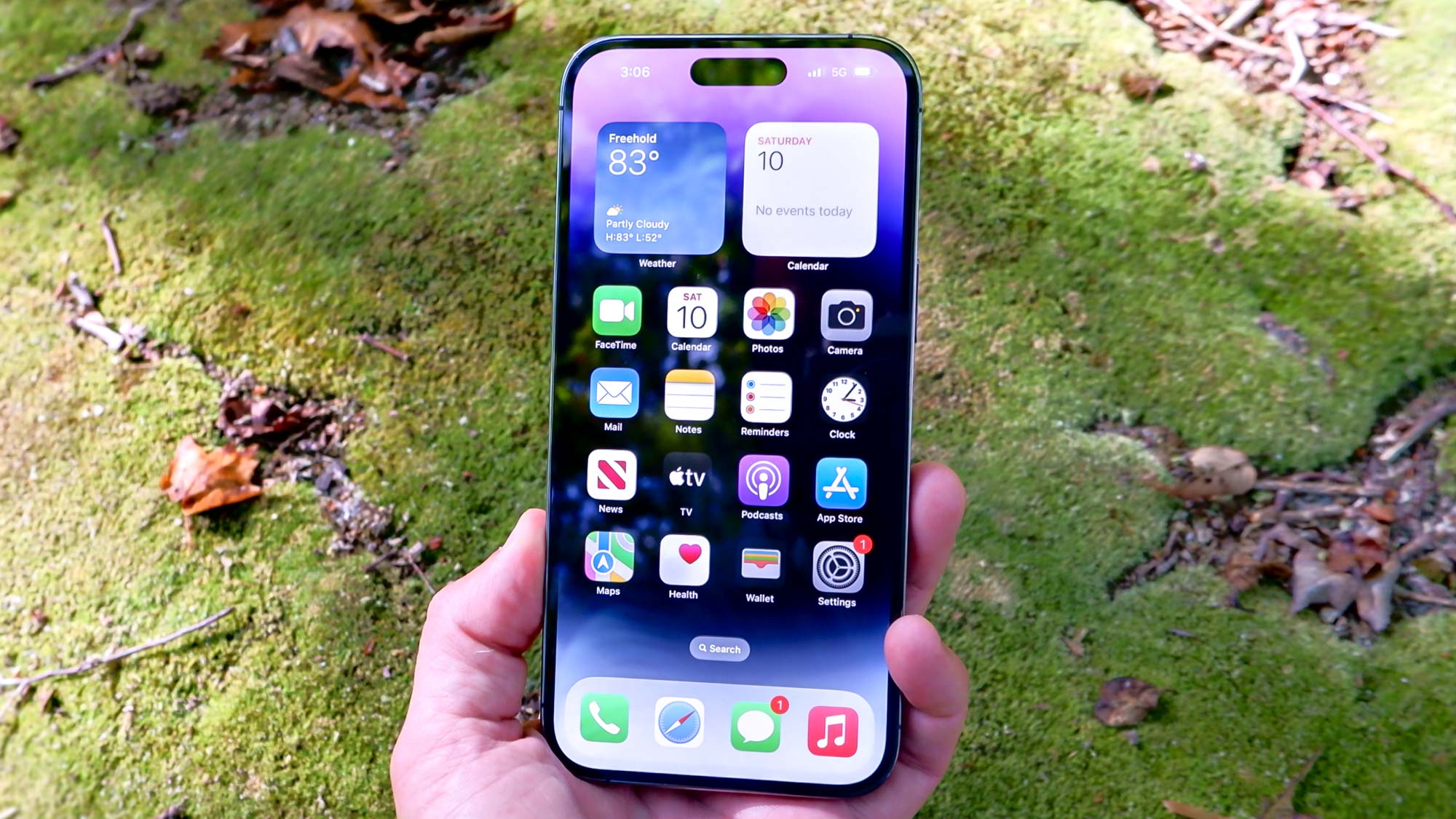
The iPhone 14 Pro Max and iPhone 14 Plus fared much better at 14 hours, 42 minutes and 11 hours, 57 minutes, respectively.
For reference, here’s what Apple said about battery performance for its new phones:
- iPhone 14 - Up to 20 hours of video playback
- iPhone 14 Plus - Up to 26 hours of video playback
- iPhone 14 Pro - Up to 23 hours of video playback
- iPhone 14 Pro Max - Up to 29 hours of video playback
Those numbers mean a whole lot of nothing in the context of real world use, as our testing has demonstrated. Many blame the iPhone 14 Pro's inferior battery life (as compared to its predecessor's 12:18) on the new always-on display, which seems to sap a lot of power.
But once again, the Pro holds the advantage, this time needing a charger less often.
iPhone 14 vs. iPhone 14 Pro: Software
Here’s an area where the iPhone 14 and iPhone 14 Pro are basically the same. They each started life running iOS 16, but both can be upgraded to iOS 18, which arrived this past September.
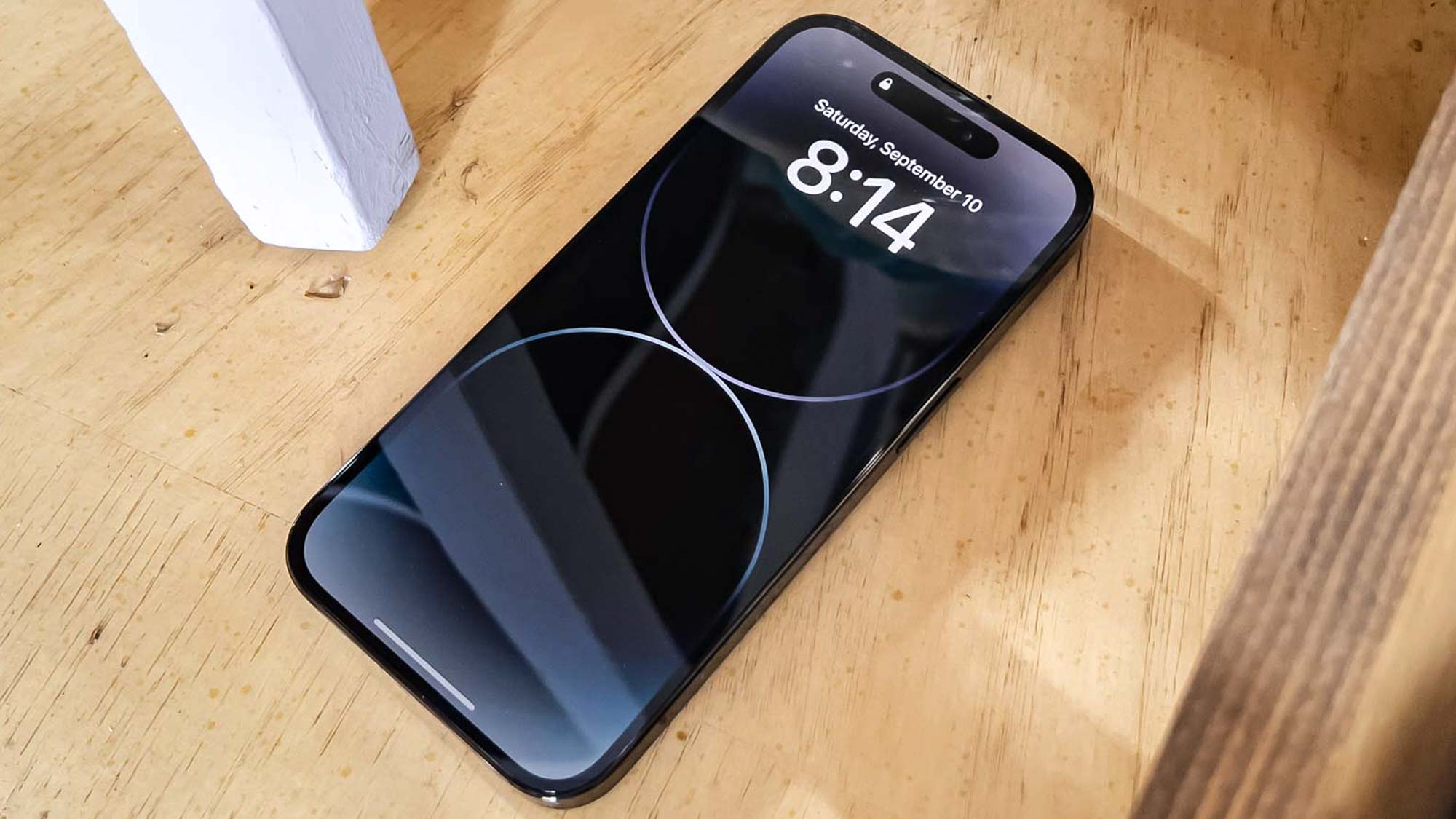
iOS 18 introduces features such as greater home screen and lock screen compatibility, Math Notes equation solving in the Notes app and a reworked Photos app. Both the iPhone 14 and iPhone 14 Pro are new enough to support nearly every iOS 18 feature, though as we said earlier, Apple Intelligence is off the table.
iPhone 14 vs. iPhone 14 Pro: Verdict
We said at the outset of our iPhone 14 vs. iPhone 14 Pro comparison that this was the iPhone release where Apple really made a point of emphasizing the differences between Pro and regular models. Apple clearly held back on the iPhone 14, making minimal to moderate upgrades over the iPhone 13 while pushing the boat out on the iPhone 14 Pro.
That's significant in terms of considering the iPhone 14 as a discount purchase now that it's $200 less than its debut price. As tempting as that may be for budget hunters, the iPhone 15 picked up some of the more premium features Apple added with the iPhone 14 Pro, and at $699, it comes at a discount of its own. You might want to check out our iPhone 15 vs. iPhone 14 face-off to see which bargain iPhone is the better choice.







